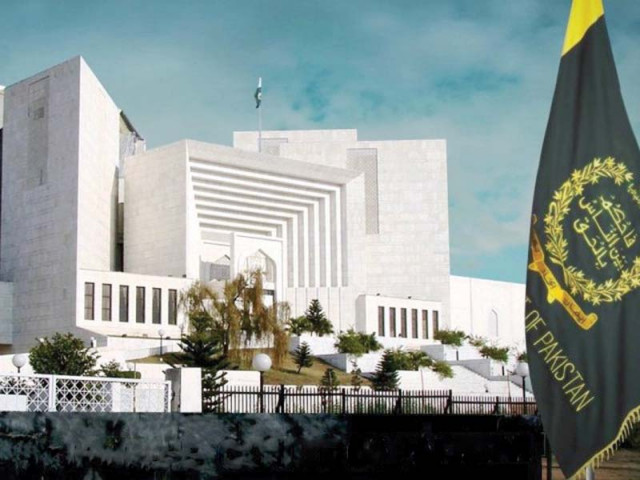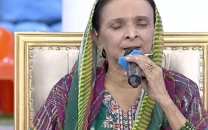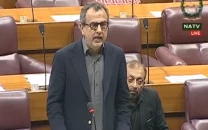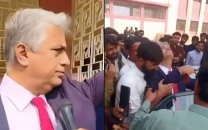Lawyers back judges’ pleas for open trail before SJC
Amici curiae say confidence in integrity of judicial system would be served by open hearing

PHOTO: EXPRESS
Muneer A Malik and Shahid Hamid support the stance adopted by Justice Shaukat Aziz Siddiqui of the Islamabad High Court and Justice Farrukh Irfan of the Lahore High Court that SJC’s proceedings against them should be conducted publically.
The two senior lawyers have been appointed as amicus curiae, or friends of the court, in the references against the two high court judges. A larger bench of the Supreme Court is all set to resume hearing of the petitions against the judges on Tuesday.
However, Attorney General for Pakistan Ashtar Ausaf Ali opposes open trial of superior court judges.
Earlier, the SJC under the chairmanship of Chief Justice of Pakistan Mian Saqib Nisar had rejected their pleas.
“The confidence in the integrity of the judicial system would be served by an open hearing as opposed to an in-camera hearing without prejudice to the recognised rule of conducting part of the hearing in-camera, such as for the protection of the witnesses and the creation of a public spectacle,” says Muneer A Malik advocate.
In his written submission, Malik states, “Disciplining judges is an important governmental business that should be conducted transparently”.
“Citizens have a right to know when a judge’s integrity has been seriously questioned and opening the process to public scrutiny would help ensure that the process appears to be honest, which has a special concern whenever a profession polices itself,” he argues.
Ministry’s stance for open SJC proceedings irks AGP
He also states that a report about disciplinary proceedings against a superior court judge is of inherent significance, since instances have been so rear in the last 70 years, the proceedings become a ‘man bites dog’ story.
“Public confidence in the integrity and in the process that the litigant will get a fair shake from an impartial judge is essential to the rule of law. The delicate balance would more likely upset rather than be protected by a system that put the judge’s interest in his or her reputation above the citizen’s right to know that the judge’s integrity was at issue; that shielding from public scrutiny the very judges who must safeguard the right to a public trial for anyone else encourages skeptics to argue that in a self-policing system judges and lawyers would protect their own,” states the senior lawyer.
It is further submitted that the case for openness is that the public would better be informed not only about the nature of the accusation, but also as to how the judiciary deals with its own members.
“Keeping disciplinary proceedings private runs the risk of signaling to the public that judges are benefiting from special treatment. In any case, maintaining complete confidentiality is often beyond the judicial commission’s control. This often results in published misinformation and both confidentiality and confidence in the integrity of the disciplinary system suffer,” he argues further.
Likewise, Hamid also submits that “it cannot possibly be imagined that an SJC inquiry will be other than absolutely free and fair and impartial or that the SJC will not scrupulously ensure due process in the inquiry. At the conclusion of such inquiry the SJC will either find the charges against the judge to have been established or will exonerate him”.
“However, justice has also to be seen to be done. If the inquiry proceedings are open to the public, there will not be room for any doubt that the inquiry has been free and fair and impartial and that due process was observed and that the SJC, comprising the senior most judges in the country, has rightly decided one way or the other,” states his written submission.
Hamid adds, “Articles 4, 8, 9, 10A, 14, 19A and 25 of the Constitution and the golden principles of natural justice require that all proceedings of the SJC should be open to the public unless the SJC determines otherwise in the peculiar circumstances of a case.
“Even in such a case the SJC may release the record of the in-camera proceedings at the conclusion of the inquiry. The SJC must amend para 13 of its Procedure of Inquiry 2005, which says that the proceeding will be conducted in camera.
“An open trial at all stages and the public’s right to know all matters of public importance are not absolute rights. They are subject to exceptions which may pertain to the whole of a particular trial or part of it.”



















COMMENTS
Comments are moderated and generally will be posted if they are on-topic and not abusive.
For more information, please see our Comments FAQ